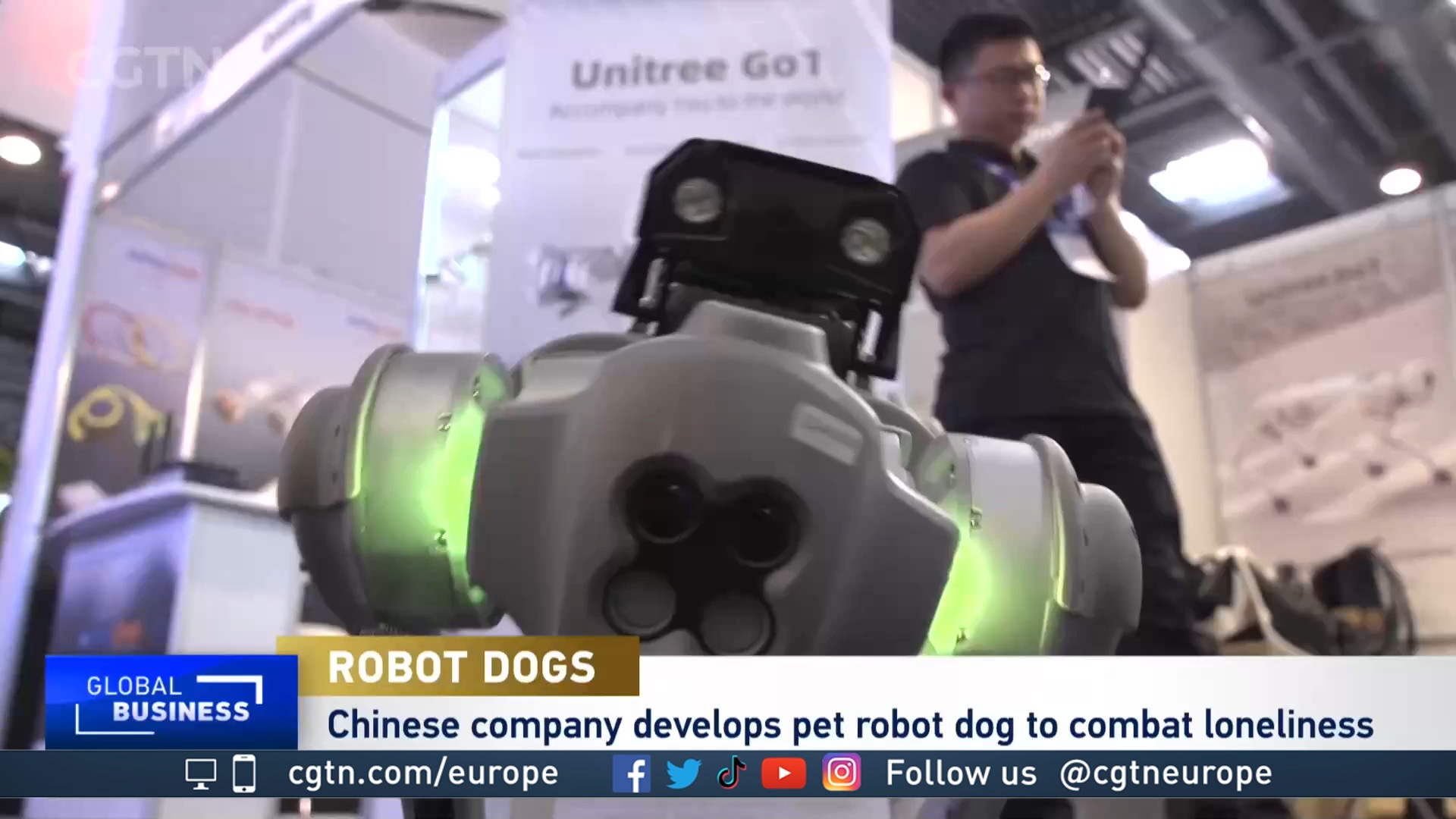02:25

Humanity's newest best friends could be powered by Artificial Intelligence and supercomputer brains. Robodogs are smarter and more useful than ever - they're even ready to be our pets.
Robot dogs with jobs are already a thing: they're delivering packages, inspecting parts of power stations that would be dangerous for humans while operational, scanning chemical plants for leaks or problems, and even taking gas measurements on oil rigs.
Some of them, however, just want to be your friend. Go1 was designed to be a pet by China-based Unitree Robotics. Gou is the Chinese word for dog and with its real-time 3D-mapping sensors, multiple cameras, agility, and dynamic object-avoidance, it can perform a variety of tasks. But will they replace the real thing?
READ MORE
Austria is using AI to protect biodiversity
The European bison: back from the brink
Saving the world's most endangered cat
"The main advantage is that if it's a real dog you have to feed it every day and for the robot - just charge its battery, it's very easy," says Li Chen, Unitree Robotics Founder and COO. "We have different types of robot dog, the small one is used like a pet, the bigger one we call B1 and it's mainly for industrial applications like security and inspection."
The cyber dogs can even communicate with each other via an internet connection. "They have their own language," explains Chen.
Robot dogs: Companions and helpers in the age of loneliness
A 2018 study showed that one in five people said they always or often felt lonely, and the so-called 'loneliness epidemic' was exacerbated by the pandemic.
Robot dogs with voice recognition and response may provide companionship, home assistance and security for elderly people, the manufacturers say.
They could be alert to falls and other accidents at home, and even call an ambulance.
Go1 can also be your new jogging partner. It runs at a record 17 kilometres per hour and its tracking system means it stays close by automatically.

The Unitree family on display at the Mobile World Congress. /KenBrowne/CGTN
The Unitree family on display at the Mobile World Congress. /KenBrowne/CGTN
Privacy concerns and e-waste
So what are the limitations? As AI rapidly advances and technology, like these pet dogs, learn more about their owners, some concerns have been raised about consumer privacy. We know that our phones listen to us and base advertisements on the things we say and search on internet browsers, and having one of these robot dogs in our homes could mean more access into our private worlds.
Then there's the e-waste element. Machines don't last forever and eventually become e-waste, with the tech sector on course to produce over 75 million tonnes of digital waste, these robots could add to the pile.
Currently only 17 percent of e-waste is recycled.
Robot dogs that save lives
There are, however, many other positives happening in this space. Keybotic is a Barcelona-based robotics start-up, and it's designed a robot dog with a keen sense of smell.
The company won a million-dollar prize to develop 'Keyper,' an autonomous cyber dog that can 'smell' gas leaks, chemical spills, and even detect humans trapped under buildings. CGTN spoke to Hilario Tome, founder of Keybotic at the Mobile World Congress in Barcelona.
"One of these robots, what it does is you leave it in a place and you tell it: 'Go find me something.' It maps the whole environment including spaces, gasses, and even humans," explained Tome.
"Our robot can give positional assistance in difficult situations such as Turkiye or Syria and have the robot work with first responders in order to reduce the risk and to find people."
Now there's a good dog!
Subscribe to Storyboard: A weekly newsletter bringing you the best of CGTN every Friday